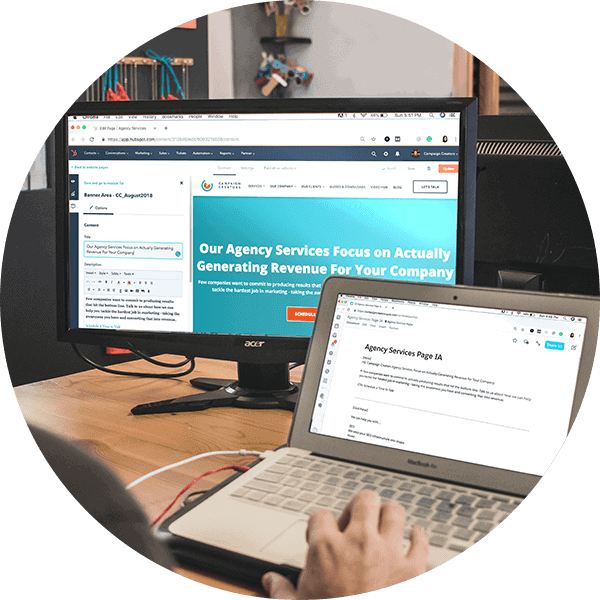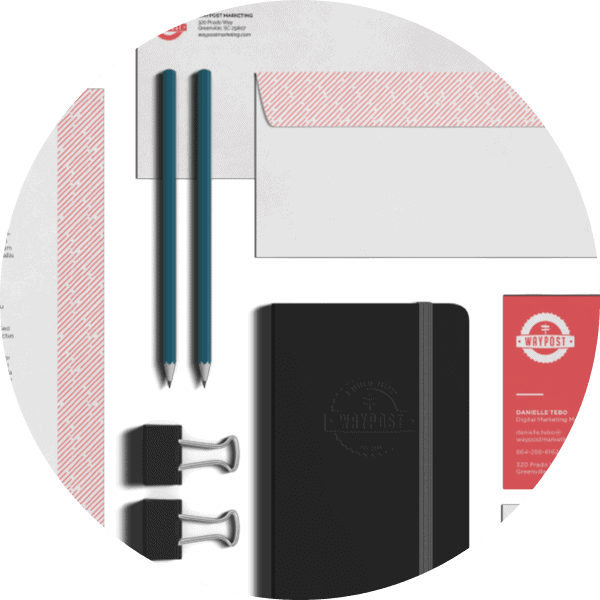
3 Essential Steps When Starting a Company Blog
May 4, 2017
How Employee Spotlights Help Client Engagement
June 15, 2017
Blogging can seem pretty straight forward for a business. Once you’ve taken our advice on starting a company blog and how to utilize blog content to pull in prospective leads, you just… get going, right?
Well, yes and no.
While some businesses may have a fairly easy time deciding on their content ideas, organizations in more regulated industries may be concerned on how to translate complicated rules around industry advertising into a successful blog and social media presence.
We’ve worked with some clients who have had to operate within very stringent legal regulations, and others who faced potential liability issues surrounding certain topics. This has helped us learn how to maintain a successful and professional online presence on behalf of our clients.
Today, I’d like to help you with five quick tips to help you succeed at blogging in professional industries—whether you’re writing on behalf of a law firm, within the healthcare industry, working for a company that deals with financials or tax preparation, or other industries with similar complexities.
1. Have You Read the Regulations You’re Bound By?
One common issue I’ve seen pop up is companies who find themselves on the wrong side of advertising rules simply because they never fully read them in the first place.
While these sorts of documents often involve a lot of “legal speak,” it’s essential to sit down and go through the regulations that might affect your online presence. I like to take each regulatory document page by page, jotting down the “laymen’s terms” of each paragraph. Often a four-line paragraph of “legalese” can be summed up in a single sentence.
I’ve been able to take a seventeen page advertising regulations document down to just one and a half pages of relevant, important rules I needed to stick to for that particular client, which simplified things quite a bit going forward while also ensuring we kept our client on the right side of their regulatory body.
2. Don’t Rely Too Much on Industry Jargon
When writing a blog for a professional industry, such as a wealth management company or a law firm, it can be tempting to rely heavily on the industry jargon that you’re used to using with your employees or with other industry professionals around the office.
Odds are good that the prospective customers or clients you’re trying to reach don’t know those industry terms.
Even when you’re a B2B that is primarily speaking to potential leads within your industry, it’s important to keep the jargon to the necessary minimum. Long paragraphs that rely heavily on industry terms can be difficult to read at best and downright boring at worst. If your potential lead gets bored, they’re going to click away, and now you’ve lost that prospect.
If you’re more comfortable writing with industry language, go ahead and write out each paragraph as-is, then go back and make sure that your Buyer Persona would be able to understand it easily. Ask yourself, “If someone who wants to purchase our product or services is reading this, do they really understand what I’m trying to say here?”
3. Check Your Sources — Then Cite Them
Many industries change rapidly with legislation or regulatory changes, while other industries must chart the daily changes in the stock market or price fluctuations for specific imports or exports.
In this case, your blog posts may often reference events in the news or in industry-specific newsletters or magazines.
If you mention specific events, facts, or figures you’ve located either online or in paper publications relevant to your industry, be sure to list and (if possible) link to the source for those facts and figures! If you’re unable to link because the publication is not available digitally, then list the name of the publication and the issue number and date. (For example: “New Changes In Your Field” by Arthur Voorhees, Industry Business Journal, Issue No. 174, December 2016 would be appropriate).
Not only will linking to the website help you with outbound links that aid your potential leads in finding your blog in the first place, but citations help to build authority and credibility as a thought leader in your industry.
4. Keep Your Content Calendar Flexible
This is related to our last point. In industries that can change based on a new piece of state or federal legislation or sudden changes in the stock market or healthcare market, it’s essential to keep up to date on the latest news… plus it helps to keep your clients up-to-date, too.
You might have a blog post on an interesting historical fact you found regarding your industry scheduled and ready to publish, but if a sudden news update occurs that’s more timely and relevant, you need to have the flexibility to push that post off until next week so you can address this news update or sudden issue right away. Your clients are relying on you to be their link to understanding and making sense of these sudden industry changes that could affect their lives.
If you’re writing the blog yourself, make sure you include flexibility in your content calendar. If you outsource your marketing efforts (including blogging) to a freelancer or marketing agency like Waypost, make sure they’ve got the flexibility to adapt to these sudden changes, too.
5. Choose a Marketing Agency That Can Work With Complexities
If you’re busy keeping your law firm, healthcare business, financial firm, or other professional industry organization on track to succeed and grow, it may feel like there’s just no time for the very marketing efforts that can help you ensure that you succeed in the first place.
Outsourcing your marketing department is a natural next step, but it could also turn into a serious liability issue.
If you choose a marketing agency that isn’t willing to do the work to really dig in to your industry regulations and potential legal complications, you could end up on the wrong side of a fine or worse. Make sure, when you initially discuss strategy and other concerns with the marketing agency you’re working with, to mention these regulations will need to be adhered to.
Another good idea is to ask, at least early on, that blog posts, emails, landing pages, premium campaign content, and all marketing materials receive your review and approval.
Once you’re reassured that the agency has a good grasp on the regulations, you can drop this requirement. Starting out with giving your approval can help you and the agency, though, since it allows them to get a good idea of what kinds of topics and language work best within an industry that may be new to them.
At Waypost Marketing, Our B2B Experience Can’t Be Beat
Waypost Marketing is a great option for a professional industry like financial management, law firms, litigation support companies, healthcare-related businesses, and other complex B2B or B2C organizations looking for an outsourced Inbound Marketing team.
We do the research to better represent our clients, and we’re committed to taking the time to find the best way to attract leads and stay in line with industry regulations. If you need a marketing agency to help you tell your story, give us a call at (864) 288-6162 or contact us online at any time to get started!









